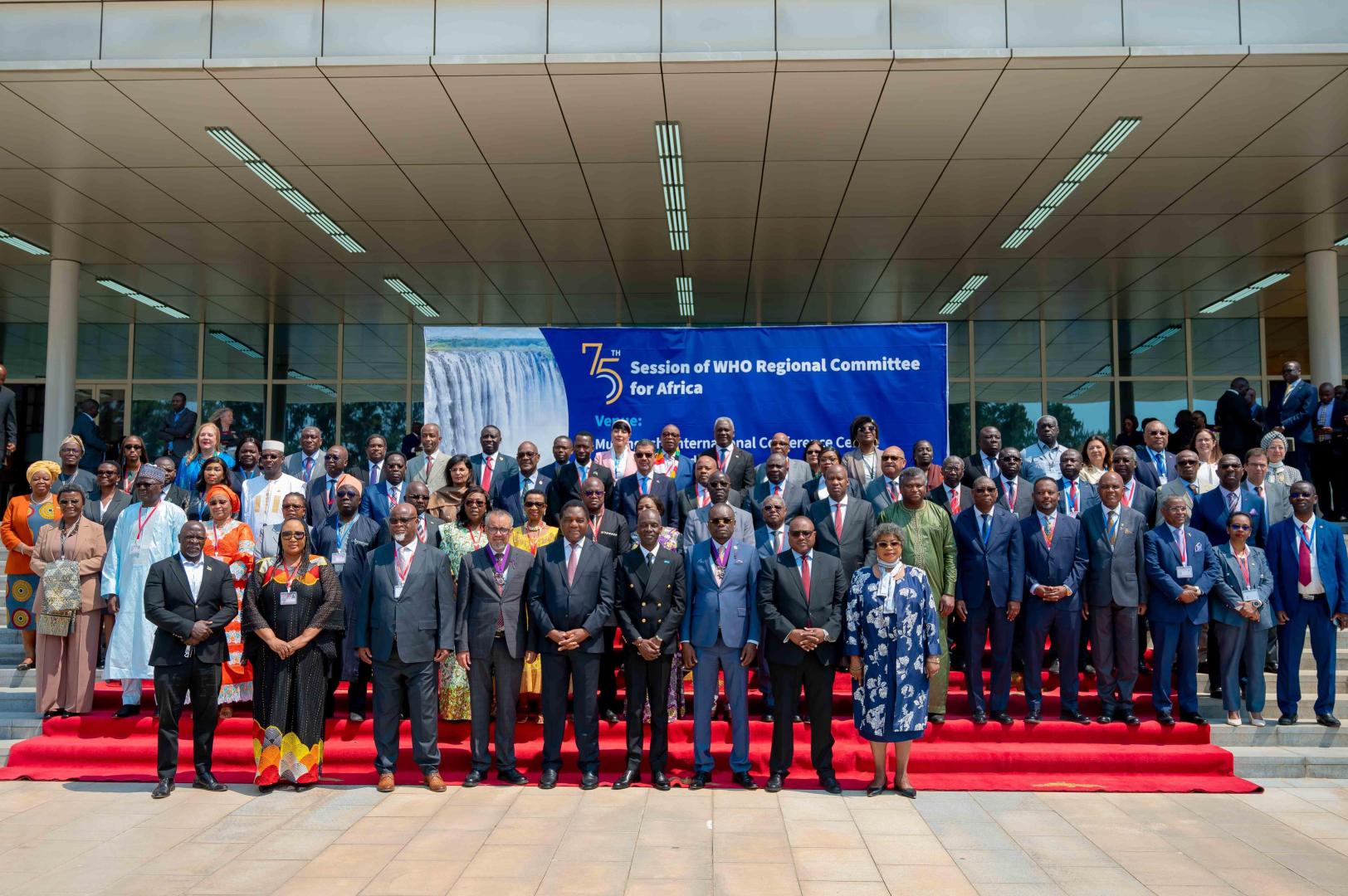WHO Africa meeting demands accountability in women and children’s health

Senegal, representing the Global Leaders Network (GLN), called for stronger accountability mechanisms within the African Union.
African leaders have made a strong appeal for urgent action to end preventable deaths of women and children, during the 75th Session of the World Health Organization (WHO) Regional Committee for Africa (RC75).
The meeting, which brought together Member States and partners this week, placed the health and well-being of women, children and adolescents at the center, with calls for greater investments, stronger accountability and faster progress.
In total, 43 statements were delivered, 30 from Member States and 13 from partners , highlighting Africa’s heavy burden of maternal and child mortality.
The continent accounts for 70% of global maternal deaths and 55% of child deaths, despite notable progress made between 2000 and 2023, when maternal deaths dropped by 40% and under-five mortality reduced by more than half.
Delegates were reminded of the ongoing crisis, with WHO noting: “Every day, roughly 800 women and newborns die due to preventable causes related to pregnancy and childbirth.” The agency warned that progress remains uneven and insufficient to meet the 2030 Sustainable Development Goals.
WHO presented its working paper titled Accelerating progress in the health and well-being of women, children and adolescents by transforming health systems in the African Region, which outlined three flagship approaches: prioritizing health investments, expanding service delivery capacity, and embedding equity and resilience into essential health services.
Several Member States backed the proposals. Kenya pointed to resource shortages, saying that “key challenges include commodity gaps and skilled health workforce attrition.”
Seychelles emphasized the need for robust data to guide decision-making, while Zambia said: “we are using data to drive health programmes and address challenges such as health systems inequalities.”
Malawi raised concern over high teenage pregnancy rates, stressing that it is working to improve training and access to life-saving commodities.
With global health financing under pressure, the issue of funding and accountability dominated discussions.
Seychelles urged countries to treat health as a driver of development, stating:
“We particularly call for investment in health as a driver of socio-economic development.”
A Lancet study cited at the meeting warned that cuts to U.S. funding and the dismantling of USAID could result in 14 million additional deaths by 2030, including 4.5 million among children under five.
Senegal, representing the Global Leaders Network (GLN), called for stronger accountability mechanisms within the African Union.
“Senegal calls for joining the Global Leaders Network to institutionalize accountability for the health of women, children and adolescents within the organs of the African Union,” its delegate said.
Kenya also supported the push for “stronger regional mechanisms for accountability and data use.”
Civil society partners reinforced the message, with the Partnership for Maternal, Newborn and Child Health (PMNCH) stating: “We know what works; the challenge is ensuring commitments are implemented, tracked and reviewed transparently, with communities, youth and civil society meaningfully engaged.”
Zambian President Hakainde Hichilema opened the session with a personal reflection on Africa’s health realities. “I was born in a health center with no water, no electricity.
My grandmother was the birth attendant. This remains a reality for too many African women and children today,” he said.
Hichilema outlined Zambia’s reforms, including expanded health facilities, recruitment of specialists, and linking health and education so that more than two million children returned to school.
He called on leaders to focus on four priority areas: building resilient health systems, boosting local manufacturing, strengthening regional solidarity, and aligning with global frameworks.
“These challenges are only beginning, therefore we need to respond positively and aggressively. We must see the opportunity in challenges,” he said, adding that Zambia would lead on vaccine manufacturing efforts.
